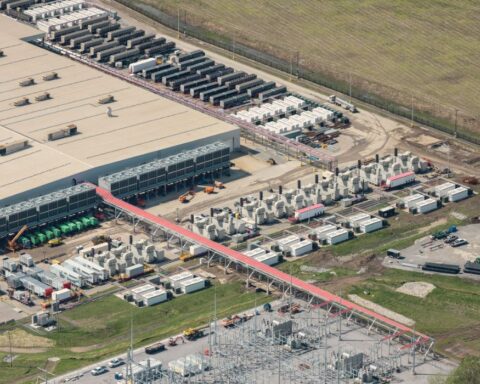U.S. President Donald Trump has proven to have a soft spot for flatterers, quacks, polluters and coal companies. Little wonder, then, that when oil prices plunged in mid-April, Trump tweeted, “We will never let the great U.S. Oil & Gas Industry down” (the random capitals are his).
“I have instructed the Secretary of Energy,” Trump continued, “to formulate a plan which will make funds available so that these very important companies and jobs will be secured long into the future.”
At the same time, others were wondering if fossil fuels even have a future. The price of Brent crude had fallen to US$20 a barrel, an 18-year low. Oil-futures prices in Texas, where producers were running out of room to store inventory, dipped into the negative – meaning some producers were paying US$40 a barrel just to get rid of the stuff. With Russia and Saudi Arabia flooding the world oil market while COVID-19 stopped most traffic, industry analysts speculated that an inflection point had been reached.
In a story headlined “Oil Companies Are Collapsing, but Wind and Solar Energy Keep Growing,” The New York Times said renewable energy sources would generate a record 20.7% of electricity in the U.S. this year, up from 18% last year. “While work on some solar and wind projects has been delayed by the [virus] outbreak, industry executives and analysts expect the renewable business to continue growing in 2020 and next year even as oil, gas and coal companies struggle financially or seek bankruptcy protection.”
Though oil prices have rebounded somewhat from their record lows (Brent was back above $40 a barrel this summer), the International Energy Agency recently said 2020 would see the lowest oil demand in 25 years: “Even assuming that travel restrictions are eased in the second half of the year, we expect that global oil demand in 2020 will fall by 9.3 million barrels a day versus 2019, erasing almost a decade of growth.”
The pain came home to roost when oil giant Exxon last week announced a second-quarter loss of US$1.1 billion, with gross revenues of $32.6 billion underperforming analyst forecasts by a hefty $5.5 billion. Exxon shares have fallen 38% so far this year – and oil prices could tumble again.
Recently, the Telegraph noted that “there is mounting evidence that a second wave of COVID-19 could send prices spinning into a nosedive once more.” Earlier this week Stephen Innes, Chief Global Markets Strategist at AxiCorp said, “Most oil market participants expect more downward pressure on oil … with COVID-19 ravaging the landscape and OPEC+ adding more barrels into play.”
Meanwhile, the Times reported that U.S. solar capacity – spurred on by falling prices for solar panels – grew 23% in 2019. “We blew through all of the projections,” said Caton Fenz, CEO of ConnectGen, a Houston-based developer of wind and solar power. “We’re surfing a long-term wave.”
While the COVID crisis stalled most corporate initiatives, including Big Oil’s recent commitment to big renewables, the global shift remains underway. Just last week, BP announced it’s slashing its oil and gas production by 40% and increasing its low-carbon investments tenfold by 2030 (to $5 billion per year), as part of its 2050 net-zero targets.
At Corporate Knights’ Building Back Better roundtable on energy innovation in late May, federal Natural Resources Minister Seamus O’Regan declared that embracing green energy is not a retreat, but an advance.
“Net-zero is not just a plan for our environment. It is a plan for our economic competitiveness. And increasingly, this is where markets are going,” O’Regan said.
Noting that Sweden and Norway’s sovereign funds and institutional investors such as BlackRock are shifting away from fossil fuels, he added, “Ultimately, you follow the money. And the money is increasingly steering us toward net-zero solutions.”
A version of this story appeared in the Summer Issue of Corporate Knights.







